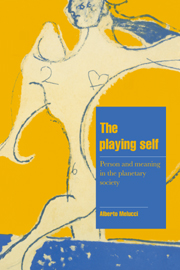Book contents
- Frontmatter
- Contents
- Introduction
- 1 The challenge of the everyday
- 2 Needs, identity, normality
- 3 Metamorphosis of the multiple self
- 4 The inner planet
- 5 Body as limit, body as message
- 6 On taking care
- 7 The abyss of difference
- 8 Amorous senses
- 9 Inhabiting the earth
- 10 A eulogy to wonder
- Epilogue
- Bibliographical note
- References
- Index
10 - A eulogy to wonder
Published online by Cambridge University Press: 04 October 2009
- Frontmatter
- Contents
- Introduction
- 1 The challenge of the everyday
- 2 Needs, identity, normality
- 3 Metamorphosis of the multiple self
- 4 The inner planet
- 5 Body as limit, body as message
- 6 On taking care
- 7 The abyss of difference
- 8 Amorous senses
- 9 Inhabiting the earth
- 10 A eulogy to wonder
- Epilogue
- Bibliographical note
- References
- Index
Summary
Smiling, laughing, and other pleasantries
Laughter is a very serious subject indeed. Since Freud, it has occupied the energies of the most earnest of scholars, and learned books and treatises on it abound. We know, however, that what happens in laughter cannot be fully captured by the talk of it, and that talking about laughter will not make us laugh. Nevertheless, we need to venture into a discussion of this special dimension of our everyday experience, for without it everything I have said so far loses in significance. Laughter, so familiar and accessible an event to us all, brings us most directly into contact with the experience of the limit and of possibility.
Humans are the only animals capable of laughter. Other species solve problems and are even able to learn languages, yet they are unable to laugh. Only humans laugh, and, at the present stage of our evolutionary progress, laughter apparently represents an innate form of behaviour: a baby first smiles after five or six weeks of life and then begins to laugh between the fifth and sixth month. Laughter certainly serves to express emotions, to communicate, to facilitate encountering others. After the triumph of homo faber and the subsequent discovery of his limitations, the time has perhaps arrived for us to concern ourselves with homo ridens.
The act of laughter involves complex processes, both physiological and psychological, which require no analysis when we laugh – the experience of laughter is always an integral one.
- Type
- Chapter
- Information
- The Playing SelfPerson and Meaning in the Planetary Society, pp. 133 - 143Publisher: Cambridge University PressPrint publication year: 1996

